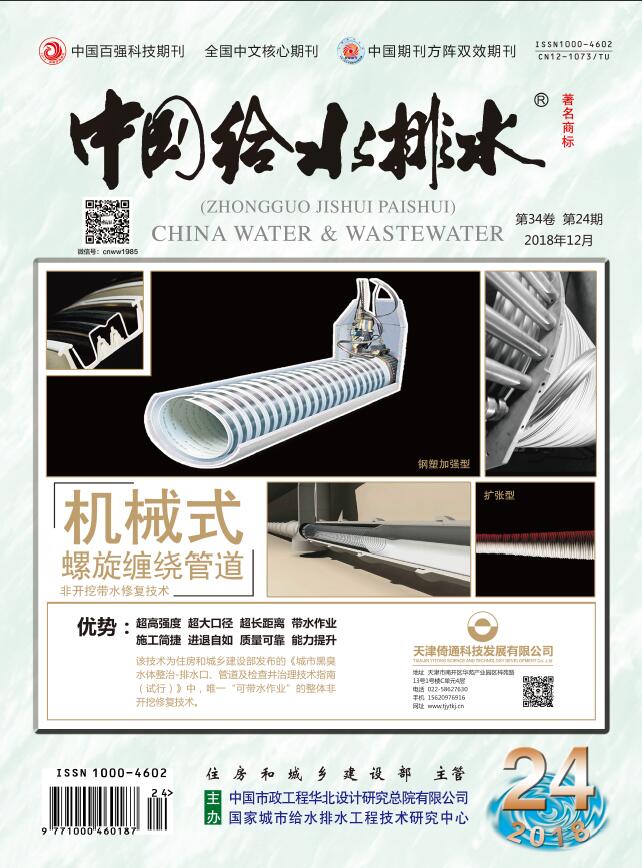LUHan-qing,ZHANGZheng,ZHENGLin,et al.Isolation of Chlorine-resistant Escherichia coli and Bacterial Antibiotic Resistance Surveillance from Reclaimed Wastewater of Municipal Wastewater Treatment Plants[J].China Water & Wastewater,2022,38(No.3):43-49.
Isolation of Chlorine-resistant Escherichia coli and Bacterial Antibiotic Resistance Surveillance from Reclaimed Wastewater of Municipal Wastewater Treatment Plants
China Water & Wastewater[ISSN:1000-4062/CN:12-1073/TU]
volume:
第38卷
Number:
No.第3
Page:
43-49
Column:
Date of publication:
2022-02-01
- Keywords:
- wastewater treatment plant; reclaimed wastewater; chlorine-resistant E. coli; antibiotic resistance
- Abstract:
- To evaluate the microbial risk associated with wastewater reuse, reclaimed wastewater samples from two municipal wastewater treatment plants were collected to study their human fecal pollution risk and distribution of isolated chlorine-resistant Escherichia coli (E. coli), and determine their antibiotic resistance. The results showed that 85.7% of the reclaimed wastewater samples had potential human fecal pollution; eight chlorine?resistant E. coli were identified constituting 20% of all E. coli, which was the first report of this strain in China posing great challenge to the disinfection efficiency in wastewater treatment process; 50% of the isolated E. coli strains were resistant to a least one of the 21 antibiotics tested with only 10% resistant to more than three antibiotics and three ESBL producing E. coli were identified suggesting that reclaimed wastewater might act as a route for antibiotic resistance dissemination. The wastewater treatment plants should adopt multiple approaches to improve their disinfections efficiency to deal with the challenges from chlorine?resistant microbes and work with related parties to control the spread of bacteria antibiotic resistance to protect the microbial safety of reclaimed wastewater.
Last Update:
2022-02-01

